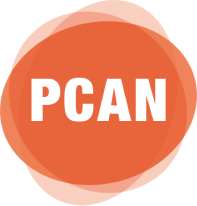The Low Carbon Working Group combines a two-fold remit, being responsible for: (i) overseeing the process of monitoring the performance of actual and proposed carbon reduction projects in the city, capturing carbon reduction data in an agreed format and preparing reports summarising this information, and (ii) being responsible for taking a city-wide view of carbon reduction and resilience projects and how funding could be secured to support their development, implementation and co-ordination.
The group also takes an interest in securing funding for the work of Leeds Climate Commission.
Information gathering
The Working Group is responsible for overseeing the process of monitoring the performance of actual and proposed carbon reduction projects in the city, capturing carbon reduction data in an agreed format and preparing reports summarising this information.
Key aims of the working group are to update the Mini-Stern report for Leeds and extend this methodology to include consumption based emissions to give a more complete picture of the contribution of the city to carbon emissions.
Background
Many organisations in the city have carbon reduction targets either set by Government, or through regulations such as the Carbon Reduction Commitment (CRC) or Energy Saving Opportunity Scheme (ESOS).
In the Climate Change Strategy, Leeds City Council adopted a 40% citywide carbon reduction target based on a 2005 baseline. There is no requirement for the Council to collect city wide data on carbon emissions and there is no formal mechanism in place to collect this information.
This means that the Council has to rely on national data which is generally at least two years out of date and does not provide any detailed breakdown of information. Consequently, it is difficult for the Council to monitor progress towards the 2020 target and, more importantly, to assist organisations across the city in achieving their own targets through policy measures, city-wide projects or inter-organisation collaboration.
Requirements
The Working Group oversees the process of assembling accurate carbon related data in the city. An ability to influence the release of carbon related information in a particular sector of the city would be an advantage.
Members of the Working Group should have experience of influencing stakeholders, project oversight and data presentation and communication. Familiarity with data relating to carbon emissions and the appropriate national and international regulatory frameworks and protocols would be an advantage.
Project portfolio delivery, funding and finance
Summary
The Low Carbon Working Group is responsible for taking a city-wide view of carbon reduction and resilience projects and how funding could be secured to support their development, implementation and co-ordination. The group also takes an interest in securing funding for the work of Leeds Climate Commission.
Background
Leeds City Region has assembled an initial pipeline of approximately 50 carbon reduction projects across the City Region, ranging in support requirement value from c£5k to c£500k, many of which are based in Leeds. These projects have been identified as having good potential for delivery, from an initial long-list of around 120 projects. However this snapshot is not comprehensive and new opportunities and developments are anticipated to come forward over time.
Requirements
The Low Carbon Working Group oversees the process of devising an efficient means of assembling and maintaining information on actual and potential carbon reduction and resilient projects across the city. The Working Group is also instrumental in overseeing effective mechanisms to bring projects from different stakeholders together where appropriate in order to achieve economies of scale or greater strategic synergy between projects.
Members of the Working Group should have experience of project oversight and stakeholder engagement. Experience and familiarity with project assembly and finance identification is also an advantage.
Meetings
For progress on the working groups, see the updates documents in the Strategy Group downloads.




